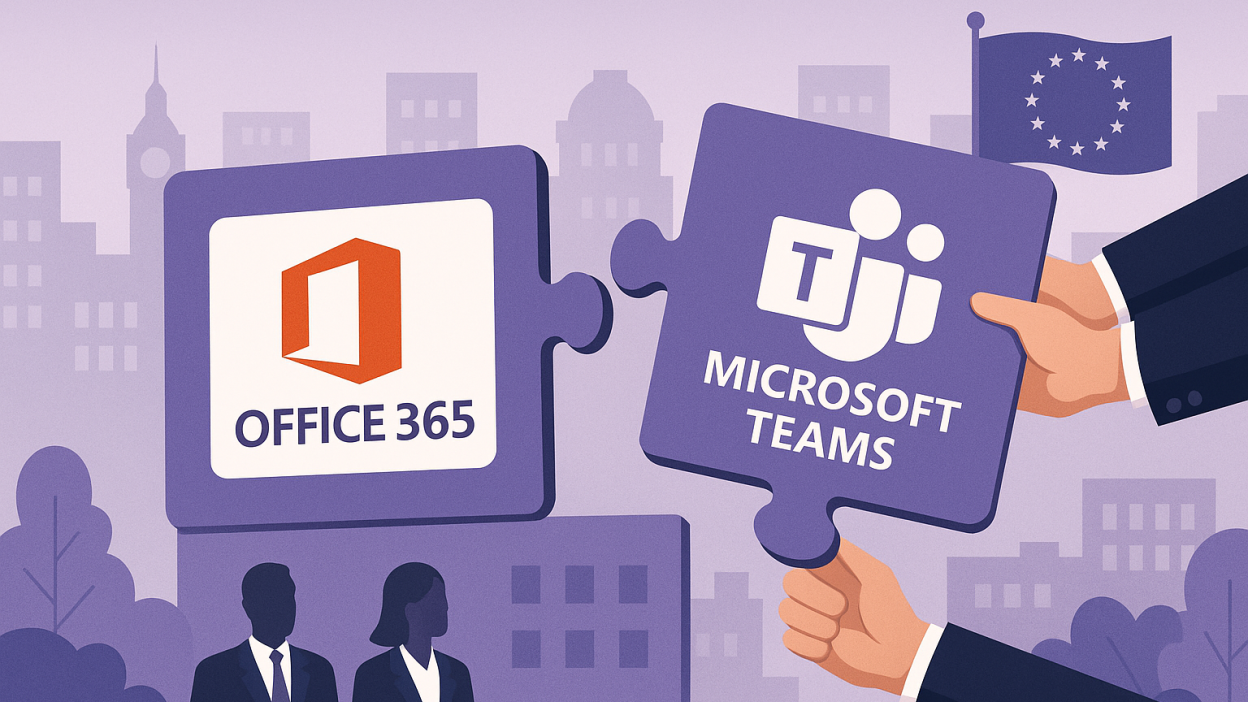Microsoft has successfully navigated the European Union’s antitrust scrutiny by unbundling its Teams collaboration platform from the Office 365 and Microsoft 365 suites. This strategic move addresses longstanding complaints from competitors, particularly Slack, and reflects a broader shift in the enterprise collaboration landscape.
For European enterprises and global organizations, this change ensures greater choice in collaboration tools, enhanced interoperability, and improved competition in the software market. Businesses now have the flexibility to select collaboration solutions that align with their workflows and budgets.
Origins of the EU Antitrust Concerns
The antitrust saga began in 2020, when Slack Technologies, now a part of Salesforce, filed a formal complaint with the European Commission (EC). Slack alleged that Microsoft’s practice of bundling Teams with Office 365 unfairly limited competition. Customers were effectively compelled to adopt Teams, restricting their freedom to choose alternative collaboration tools.
The European Commission launched a formal investigation to determine whether Microsoft leveraged its dominance in the productivity software market to stifle competition in the rapidly growing collaboration software sector.
Key Focus: Whether bundling Teams with Office violated EU competition laws and disadvantaged rivals in collaboration software.
Microsoft’s Response and Commitments
To address EU concerns and avoid antitrust penalties, Microsoft offered legally binding commitments, including:
-
Unbundling Teams from Office Suites: Office 365 and Microsoft 365 subscriptions can now be purchased without Teams, giving customers more flexibility and potentially reducing costs.
-
Enhanced Interoperability: Teams will be compatible with other platforms like Slack, Zoom, and Google Meet, ensuring seamless integration for businesses.
-
Data Portability: Customers can export Teams data easily, facilitating transitions to alternative platforms.
-
Long-Term Enforcement: These commitments will be legally binding for seven years, with certain provisions extending to ten years.
These measures aim to restore competition in the European collaboration software market and empower customers with the ability to choose the best tools for their organizations.
Implications for Enterprises and the Collaboration Market
Increased Competition
By decoupling Teams from Office, Microsoft has created a level playing field for competitors like Slack, Zoom, and Google Meet. This move encourages innovation, leading to specialized tools and solutions that better cater to enterprise needs.
Enhanced Consumer Choice
Organizations can now select collaboration tools independently of productivity suites. This flexibility enables businesses to tailor solutions to their workflow, improve user satisfaction, and adopt tools that align with their digital strategies.
Market Dynamics
The unbundling may influence pricing strategies across the collaboration software sector. Other tech giants may also reconsider bundling practices to avoid EU scrutiny. This could reshape global enterprise software offerings, particularly in the European Union, UK, and other regulated markets.
Strategic Advantage for Microsoft
While the unbundling responds to regulatory pressures, Microsoft retains the ability to strengthen Teams as a standalone product, improve interoperability, and continue enhancing its enterprise collaboration ecosystem.
Regional Impact (GEO-Specific)
-
Europe: The unbundling addresses EU antitrust concerns directly, enabling businesses to choose collaboration software freely while complying with EU competition laws.
-
United Kingdom: Post-Brexit, UK enterprises often follow EU precedents in digital competition; Microsoft’s move preemptively mitigates regulatory risks in this market.
-
Global Enterprises: Even outside Europe, multinational corporations benefit from flexible deployment options, cost optimization, and interoperability between platforms.
FAQs
Q1: Why did the EU investigate Microsoft’s bundling of Teams?
The EU assessed whether Microsoft leveraged its Office dominance to unfairly limit competition in the collaboration software market. Slack’s complaint triggered the investigation.
Q2: What does unbundling mean for Office 365 customers?
Organizations can now purchase Office 365 without Teams, reducing costs and enabling them to select other collaboration tools freely.
Q3: Will Teams still be supported and updated?
Yes. Teams remains a key part of Microsoft’s enterprise software offerings, with continued development and standalone support.
Q4: How does this affect competitors like Slack or Zoom?
Competitors now have fairer market conditions, encouraging innovation and allowing enterprises to adopt the solutions best suited to their needs.
Q5: What is interoperability, and why is it important?
Interoperability ensures that Teams can work seamlessly with other collaboration platforms, enabling cross-platform workflows and smoother business operations.
Q6: How long are Microsoft’s commitments legally binding?
Seven years, with certain aspects extending up to ten years, ensuring stability and confidence for enterprises in Europe and beyond.
Q7: Does this affect pricing for Office 365?
Yes. By offering Office without Teams, Microsoft provides cost-saving options and encourages competitive pricing in the collaboration software market.
Q8: Will this improve data portability for enterprises?
Yes. Organizations can export Teams data easily to alternative platforms, reducing vendor lock-in.
The Broader Significance for Tech and Collaboration
-
Regulatory Oversight Matters: Microsoft’s compliance demonstrates the power of EU antitrust enforcement in shaping fair competition.
-
Enterprise Empowerment: Businesses gain more control over their collaboration tools, driving digital transformation initiatives.
-
Innovation Encouraged: Competitive pressures may accelerate development of AI-powered collaboration features, advanced integrations, and enterprise-grade security solutions.
-
Global Implications: Other tech giants and regional regulators may adopt similar frameworks, influencing software strategy worldwide.
Microsoft’s unbundling of Teams from Office 365 resolves the Slack-led EU antitrust saga, enhances competition, and delivers greater choice to enterprises across Europe and beyond. By balancing regulatory compliance with strategic product development, Microsoft sets a benchmark for responsible corporate behavior in tech markets.
Enterprises, startups, and global organizations now have the freedom to select collaboration solutions that fit their workflows, budgets, and strategic goals—ushering in a more competitive, innovative, and flexible era for workplace collaboration.
Don’t miss out on the latest insights, news, and trends shaping AI, gadgets, collaboration tools, and digital transformation. Join The Byte Beam newsletter and get expert analysis, actionable takeaways, and exclusive updates delivered straight to your inbox.
Note: Logos and brand names are the property of their respective owners. This image is for illustrative purposes only and does not imply endorsement by the mentioned companies.



